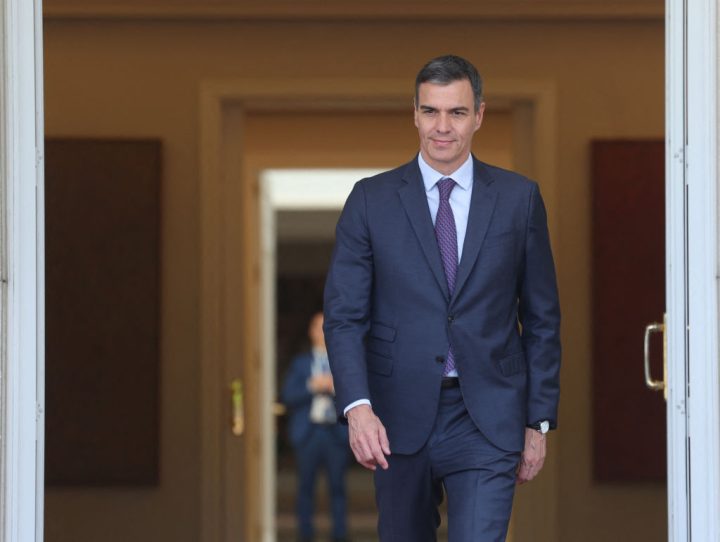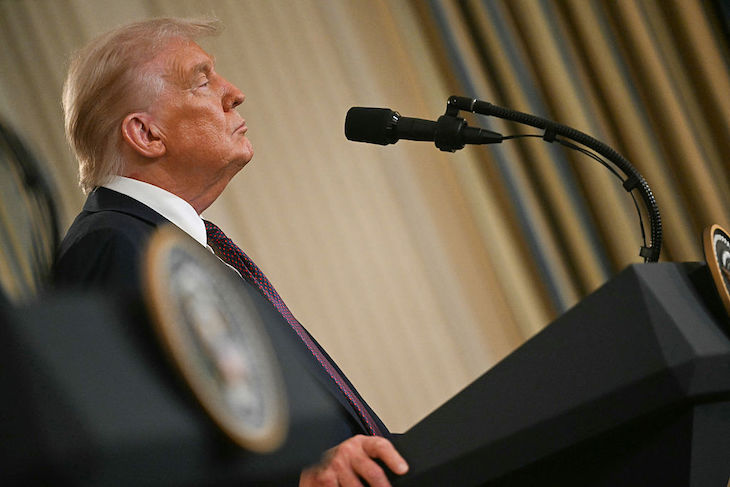When has any nation’s government amnestied hundreds of people facing criminal charges in return for the votes that allow it to stay in office? That’s what Spain’s government has just done. After last July’s general election, Pedro Sánchez, the incumbent left-wing prime minister, discovered that he needed the 14 votes of two Catalan separatist parties in order to cling onto power. The price of those 14 votes? A general amnesty for several hundred people accused of criminal activities during Catalonia’s secession push, including 2017’s illegal declaration of independence.
The amnesty bill, fast-tracked through parliament, was passed yesterday after a spectacularly acrimonious debate: 177 votes in favour and 172 against. The socialist government claims that the amnesty will draw a line under a decade of conflict in Catalonia, bringing reconciliation and helping to restore normality. The alternative – a steady flow of convictions – would have prolonged division and bitterness in the troubled region. The government attributes the recent decline in support for Catalan separatism to its conciliatory approach: it has suggested that the pardon it granted back in 2021 to nine separatists leaders sentenced to terms of between nine and 13 years, for example, did much to defuse tensions.
Millions of Spaniards can hardly be blamed for concluding that Sanchez has broken his promise
Spanish parliamentary parties are highly disciplined organisations with no tolerance of dissent so it was no surprise when every single socialist MP voted in favour of this amnesty. Significantly, however, members of Sánchez’s party who are not MPs and therefore free to speak their minds have been extremely critical of the amnesty. Former prime minister Felipe González warned that granting the separatists an amnesty nullifies the criminality of their acts, implying that they were the blameless victims of a supposedly oppressive state.
Another senior socialist politician, González’s long-time deputy, Alfonso Guerra, made a similar point: ‘Do those who carried out a coup d’état, those who continually say they are going to do it again, do they deserve an amnesty?’ And referring to the active role that the separatists have taken in the drafting of the amnesty law (they wanted to be absolutely certain that it contained no loopholes), Guerra went on to ask the question that has been troubling many Spaniards: ‘Since when are the laws written by the criminals?’
In a similar vein, the main opposition party, the right-wing Partido Popular, has described the amnesty as ‘an act of political corruption never seen in this or any other country’ and suggested that it entails the ‘dismantling of [Spanish] democracy’ since it violates the principle of equality before the law. Indeed, for Santiago Abascal, the leader of Vox, further to the right, the message that the amnesty sends Spaniards is that ‘they are not equal to politicians… that they are of an inferior class… that the politicians, as long as they are left-wing or separatists, are privileged’. Meanwhile Spain’s general council of the judiciary warned that the proposed amnesty ‘implies the degradation, if not the abolition, of the rule of law in Spain’.
The Venice commission, a legal advisory body to the Council of Europe, points out that ultimately the Spanish constitutional court will decide if the new law is constitutional and the European court of justice will rule if it is compatible with EU law. Noting that ‘social and political reconciliation’ are legitimate aims, the commission suggests nevertheless that the law should have been more restricted in its scope, should have covered a shorter time period, and should not have been fast-tracked as an urgent measure. It also notes that the bill ‘has deepened a profound and virulent division … in Spanish society’ and suggests that it should only have been passed with ‘an appropriately large qualified majority’ which builds bridges across the national separation.
Those bridges are conspicuous by their absence: polling has suggested that approximately 70 per cent of Spaniards disapprove of the amnesty, with only about 26 per cent in favour. This amnesty then has nothing like the nationwide support enjoyed by that in 1977 which covered political crimes committed during the civil war and Franco’s dictatorship and which greatly facilitated Spain’s transition to democracy. Then, the overwhelming popular support for the amnesty was reflected in the parliamentary vote: 296 in favour, two against with 18 abstentions.
What sticks in the craw of many Spaniards is that this new amnesty allows Carles Puigdemont, the head of the Catalan regional government responsible for the illegal declaration of independence, who in 2017 escaped from Spain hidden in the boot of a Skoda, to return in triumph from his self-imposed exile. While the jurists continue to argue about the constitutionality of the new law, what seems profoundly wrong to ordinary people is that Catalan separatists are to be forgiven even though they refuse to renounce their unilateral push for independence.
But perhaps the fact that stands out clearest in the whole affair, as it presents itself to the minds of millions of Spaniards, is that having sworn before last year’s general election that he wouldn’t – indeed, that for legal reasons, he couldn’t – ever grant any such amnesty, Sánchez has now gone ahead and granted it. And those millions of Spaniards can hardly be blamed for concluding that he has broken that promise not, as he now claims, out of principle but simply because it allows him to remain in office.
On 9 June Spaniards will vote in the election for the parliament of the European Union. Since that vote is widely regarded in Spain as a plebiscite on the national government, it seems we aren’t going to have to wait long to find out what the Spanish people think of Sánchez and his amnesty law.







Comments